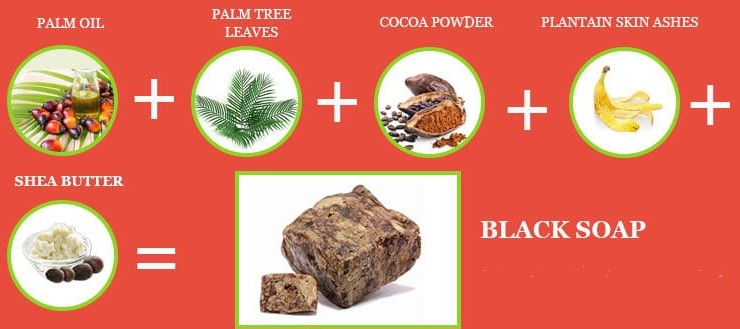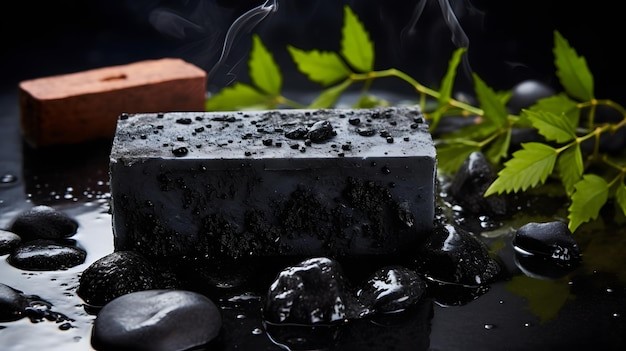In the ever-evolving realm of beauty and skincare, certain products stand out, not just for their intriguing colors or promises, but for the rich histories and traditions they carry. Black soap, with its unique, alluring dark appearance and centuries-old African origins, is one such marvel.
Revered by many as a ‘miracle’ skincare solution, it boasts of an array of benefits, from exfoliation to deep moisturization. But with its rising popularity in the global beauty market, and many brands and influencers championing its cause, the question arises: Is it truly the panacea for all skin troubles, or is it just another beauty fad?
For the discerning woman who wishes to be stylish, informed, and above all, keen on embracing only what’s best for her skin, understanding the scientific perspective on such products becomes imperative. No product, no matter how ancient or traditionally trusted, is beyond scrutiny. So, let’s dissect the pros and cons of black soap, sifting through its storied past, its present reputation, and what genuine scientific research has to say about it.

Where did black soap come from?
To understand its effects, we must first explore its roots. Originating from West Africa, black soap, often referred to as “African black soap,” is traditionally made from the ash of locally harvested plants like plantain, cocoa pods, palm tree leaves, and shea tree bark. This concoction is what gives the soap its characteristic black color.
Benefits of black soap
Natural exfoliant
Due to the ashes it contains, black soap offers mild exfoliation, ridding your skin of dead cells. This can reveal fresher, younger-looking skin beneath and make your complexion look brighter.
Rich in vitamins and antioxidants
The plantain skins, often a primary ingredient, are a good source of Vitamins A and E and iron. These can provide nourishment to the skin and combat free radicals, making your skin look healthier.
Antibacterial
Black soap has been found to have antibacterial properties that can help reduce acne breakouts, making it a boon for those with acne-prone skin.
Moisturiser
Despite its cleaning prowess, black soap is known for its moisturizing capabilities, thanks to the inclusion of Shea butter and other natural oils.

Things to consider
PH Levels
Black soap has a higher pH level than most skin types, which can potentially disrupt the skin’s natural barrier. This disruption might make the skin more susceptible to bacterial infections and breakouts.
Possible dryness and irritation
For some, especially those with sensitive skin, black soap can be drying and might cause irritation.
Inconsistency in formulation
Given its traditional and varied production methods, not all black soaps are made the same. Some might have a higher ash content, while others may lean heavily on the oils. This means the soap’s effects can vary based on its source.
In a nutshell…
Black soap, like any product, has its advocates and critics. From a scientific perspective, its benefits largely derive from its natural ingredients, but its potential drawbacks, particularly for those with sensitive skin, are noteworthy.
If you’re keen on trying it out, here’s a pro tip: Start slow. Do a patch test on a small part of your skin. If all goes well and you experience no adverse reactions, incorporate it gradually into your skincare regimen. Given its exfoliating nature, it might be best to use it a few times a week initially.
Lastly, always ensure that you buy authentic, pure black soap and not a commercialized version that might contain additives or chemicals that dilute its goodness.
Closing thoughts
In the ever-evolving landscape of beauty and fashion, there’s a push towards authenticity and natural ingredients. Black soap fits well within this trend. But remember, the key to skincare is understanding your unique skin type.
What works wonders for one might not work for another. So, listen to your skin, understand its needs, and choose products, including black soap, wisely. It’s not about following the trend; it’s about finding what’s right for you.
Now, will you be adding black soap to your beauty regimen? The science has spoken, but the final call is yours.


